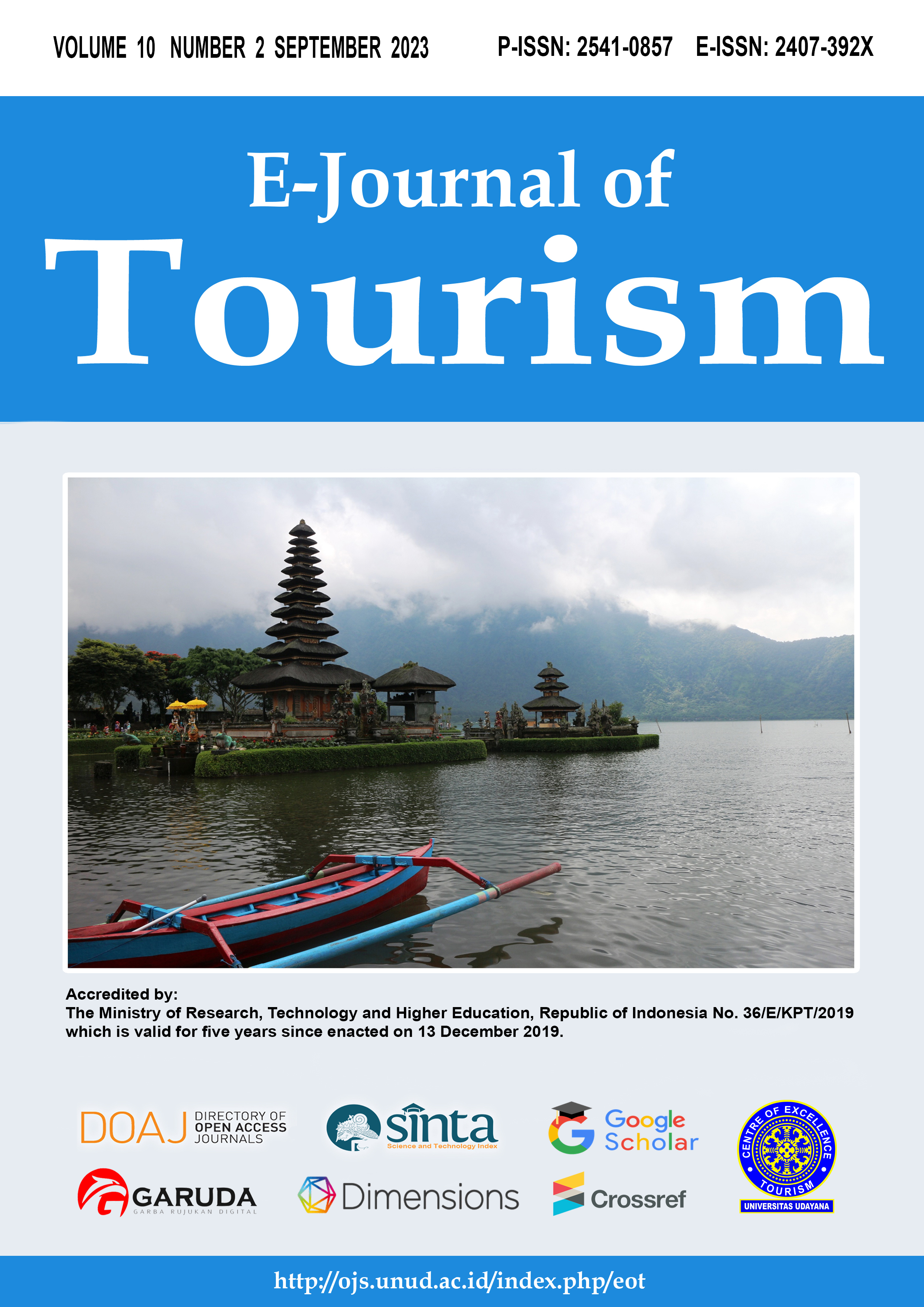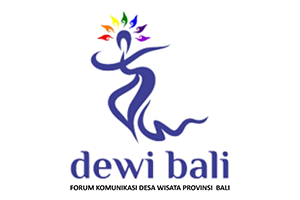The Role of Stakeholders in Ecotourism Development in Jatiluwih Tourism Village Area, Bali
Abstract
Jatiluwih is one of the tourist destinations in Bali. The development of the Jatiluwih ecotourism area certainly requires participation and synergy between stakeholders. This is useful for obtaining the objectives and results of good area management. In the development and management of the Jatiluwih, the stakeholders involved in it are considered not optimal. The purpose of this study is to find out how big the role and interests of stakeholders are in the development of ecotourism in Jatiluwih . Method of this research is qualitative and quantitative research methods. Analytical method for stakeholder using power-interest matrix grid. The number of participants in this study were 45 participants. Based on the results of research and field observations conducted by researchers, it was found that there were 15 stakeholders divided into four quadrants. The conclusion of this study is that there are 3 subject stakeholders are travel agents, tourists, and local communities. The 6 key player groups are the Ministry of Tourism and Creative Economy, Bali Tourism Office, Tabanan Regency Government, Jatiluwih Village Government, Jatiluwih tourist attraction Management, and Jatiluwih Subak. 3 context setter groups are accommodation , restaurants, and customary stakeholders, and 3 crowd groups are academics, Jatiluwih health center, and media. Suggestions for 15 stakeholders in Jatiluwih are that they should increase collaboration and cooperation to strengthen relations between one another so that they can develop the tourist area into a coordinated, beautiful and neat tourist area, while still prioritizing tourism sustainability.
Keywords: Ecotourism, Stakeholders, Tourism Village, Jatiluwih, Rice Terrace.
Downloads
References
Nurkhalis, N., Arief, H., & Sunarminto, T. (2018). Analisis Stakeholders Dalam Pengembangan Ekowisata di Hutan Adat Ammatoa Kajang Sulawesi Selatan. Jurnal Pariwisata, 5(2), 107–119. https://doi.org/10.31311/par.v5i2.3811
Reed, M. S., Graves, A., Dandy, N., Posthumus, H., Hubacek, K., Morris, J., Prell, C., Quinn, C. H., & Stringer, L. C. (2009). Who’s in and why? A typology of stakeholder analysis methods for natural resource management. Journal of Environmental Management, 90(5), 1933–1949. https://doi.org/10.1016/j.jenvman.2009.01.001
Sulastri. (2017). Peran Stakeholder Dalam Pengelolaan Objek Wisata Kebun Raya Massenrempulu Enrekang.
Widodo, M. L., Soekmadi, R., & Arifin, H. S. (2018). ANALISIS STAKEHOLDERS DALAM PENGEMBANGAN EKOWISATA DI TAMAN NASIONAL BETUNG KERIHUN KABUPATEN KAPUAS HULU. Jurnal Pengelolaan Sumberdaya Alam Dan Lingkungan (Journal of Natural Resources and Environmental Management), 8(1), 55–61. https://doi.org/10.29244/jpsl.8.1.55-61
Yahya, A., & Indonesia, M. P. R. (2015). Smart tourism. Konferensi Nasional Inovasi TIK Untuk Indonesia Cerdas.

This work is licensed under a Creative Commons Attribution 4.0 International License.
The copyright of the received article shall be assigned to the journal as the publisher of the journal. The intended copyright includes the right to publish the article in various forms (including reprints). The journal maintains the publishing rights to the published articles.




















